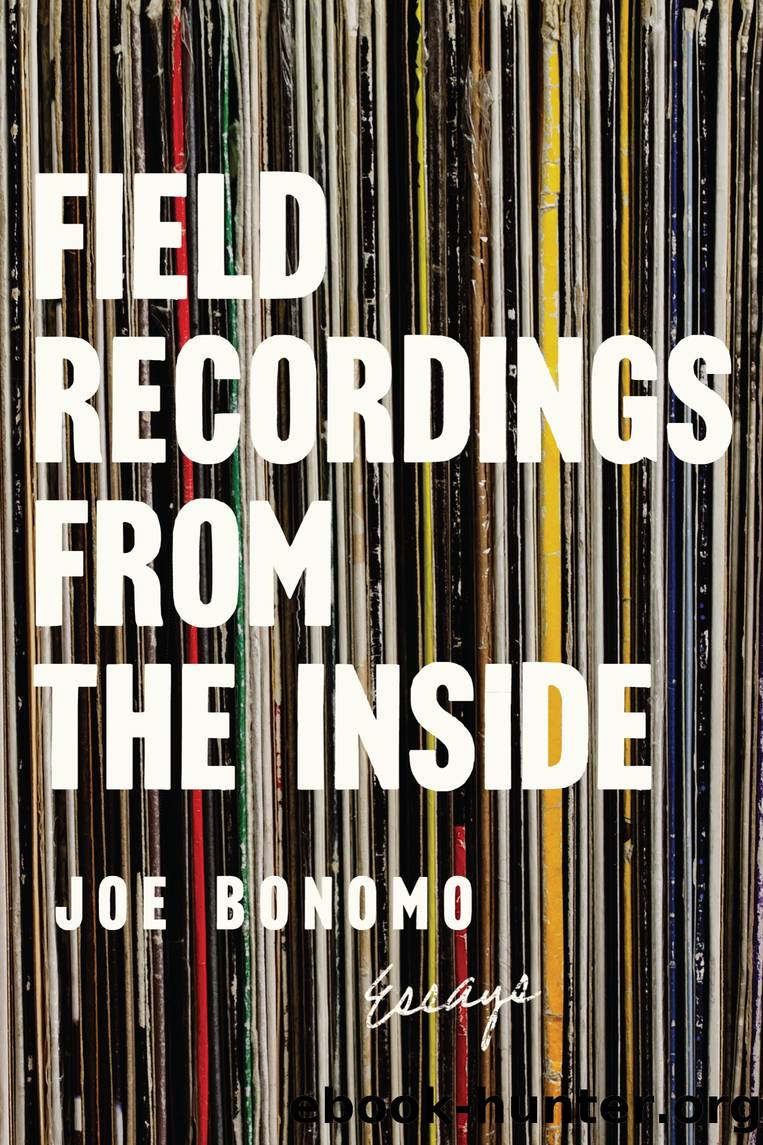Field Recordings from the Inside by Joe Bonomo

Author:Joe Bonomo
Language: eng
Format: epub
Tags: essays
Publisher: Catapult
Published: 2017-01-04T00:00:00+00:00
LAMB AND LESTER
CHARLES LAMB AND Lester Bangs have little in common. Lamb was born in 1775 and raised in London, the son of a clerk; Bangs was born in 1948 in Escondido, California, the son of a truck driver, and lived also in Detroit and Manhattan. Lamb clerked for a living at the East India Company and wrote in his spare time for London Magazine; Bangs wrote mostly album reviews for a living, for Creem, Rolling Stone, and other magazines, and wrote all day and all night. Lamb was generous-hearted, compassionate, wry; Bangs could be a bad drunk, was sometimes mean, and was often aggressive. Lamb wrote about poetry and the theater; Bangs wrote about rock and roll. Lamb skirted direct confession while writing behind a persona (âEliaâ); Bangs was nakedly autobiographical. Lamb died at age fifty-nine; Bangs at thirty-three. Lambâs editor and biographer E. V. Lucas called Lamb âthe most lovable figure in English literatureâ; Lou Reed (among others) said to Bangs, âYou really are an asshole.â Lambâs colleague and rival William Hazlitt, that old misanthrope, probably had more in common temperamentally with Bangs than did Lamb.
There are some similarities: both Lamb and Bangs were unmarried and had no children; both suffered from mental duress; both practiced what they preached (Lamb wrote sonnets and a play; Bangs formed a band and released a single); both were passionate about writing; both deeply distrusted smugness and pretension.
Each wrote an essay titled âNew Yearâs Eve.â Hereâs the opening of Lambâs, which appeared in London Magazine in January of 1821:
Every man hath two birth-days: two days, at least, in every year, which set him upon revolving the lapse of time, as it affects his mortal duration. The one is that which in an especial manner he termeth his. In the gradual desuetude of old observances, this custom of solemnizing our proper birth-day hath nearly passed away, or is left to children, who reflect nothing at all about the matter, nor understand any thing in it beyond cake and orange. But the birth of a New Year is of an interest too wide to be pretermitted by king or cobbler. No one ever regarded the First of January with indifference. It is that from which all date their time, and count upon what is left. It is the nativity of our common Adam.
Of all sound of all bellsâ(bells, the music nighest bordering upon heaven)âmost solemn and touching is the peal which rings out the Old Year. I never hear it without a gathering-up of my mind to a concentration of all the images that have been diffused over the past twelvemonth; all I have done or suffered, performed or neglectedâin that regretted time. I begin to know its worth, as when a person dies. It takes a personal colour; nor was it a poetical flight in a contemporary, when he exclaimed
I saw the skirts of the departing Year.
It is no more in what than sober sadness every one of us seems to be conscious of, in that awful leave-taking.
Download
This site does not store any files on its server. We only index and link to content provided by other sites. Please contact the content providers to delete copyright contents if any and email us, we'll remove relevant links or contents immediately.
| Biographies | Business |
| History & Criticism | Instruments |
| Musical Genres | Recording & Sound |
| Reference | Songbooks |
| Theory, Composition & Performance |
The Goal (Off-Campus #4) by Elle Kennedy(13677)
Kathy Andrews Collection by Kathy Andrews(11839)
Diary of a Player by Brad Paisley(7584)
Assassin’s Fate by Robin Hobb(6224)
What Does This Button Do? by Bruce Dickinson(6208)
Big Little Lies by Liane Moriarty(5805)
Altered Sensations by David Pantalony(5106)
Pale Blue Dot by Carl Sagan(5012)
Sticky Fingers by Joe Hagan(4204)
The Death of the Heart by Elizabeth Bowen(3624)
The Heroin Diaries by Nikki Sixx(3552)
Confessions of a Video Vixen by Karrine Steffans(3311)
Beneath These Shadows by Meghan March(3309)
How Music Works by David Byrne(3272)
The Help by Kathryn Stockett(3150)
Jam by Jam (epub)(3095)
Harry Potter 4 - Harry Potter and The Goblet of Fire by J.K.Rowling(3074)
Computational Linguistics and Intelligent Text Processing: 20th International Conference, CICLing 2019 La Rochelle, France, April 7â13, 2019 Revised Selected Papers, Part I by Alexander Gelbukh(2995)
Strange Fascination: David Bowie: The Definitive Story by David Buckley(2872)
